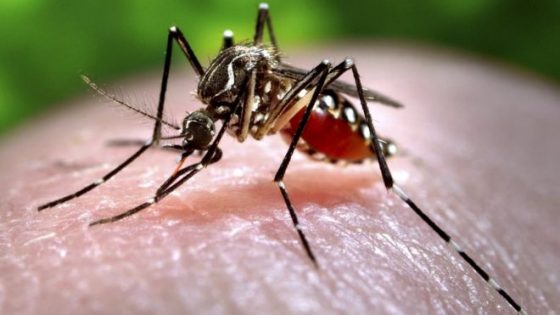
First identified in Cambodia, a new malaria superbug which is spread by mosquitoes, is ravaging southeast Asia. The new form of malaria is also drug-resistant, making the first line of defense against it, null and void.
As of now, five countries in Southeast Asia have reported artemisinin-resistant malaria. (Cambodia, Laos, Thailand, Vietnam, and Myanmar.) What is more concerning, however, is that along the border between Cambodia and Thailand, the parasite has become resistant to almost all treatments. This drug resistance is thought to be driven by a number of different factors, including patients not completing their course of drugs and inadequate treatment policies in certain regions, as well as the wide availability of the drug over the counter, including cheap substandard forms.
With humans being more connected than ever right now too, the parasite could spread to other regions of the world quickly, making treatments even more difficult. The worry for scientists is that the superbug could travel to the African continent.
According to The Lancet Infectious Diseases, the strain of Plasmodium falciparum (the new malaria superbug) is resistant to drug artemisinin. “The spread of this malaria “superbug” strain, resistant to the most effective drug we have, is alarming and has major implications for public health globally,” said the Wellcome Trust’s Michael Chew, who was not involved in the study. “Around 700,000 people a year die from drug-resistant infections, including malaria. If nothing is done, this could increase to millions of people every year by 2050.”
This is of serious concern to scientists in the global fight against the malaria parasite. The drug that it has been found to be resistant to, artemisinin, is often administered as a first-line treatment for the infection. Expanding access to this drug it is thought to have been crucial in the massive achievements seen globally to reduce the malaria burden, with up to 311 million courses of the drug having been produced in 2015 alone.
The main role of the drug is to reduce the parasite load of infected patients to a level that other combination medicines can tackle. The fact that one strain of malaria has been found to be resistant to this drug could, therefore, have a profound impact on the effectiveness of others, although the World Health Organization does stress that the parasite can still be eliminated with these other medicines, but that it simply takes more time. –IFL Science
“We are losing a dangerous race,” explained Sir Nicholas White, a co-author of the letter. “The spread of this malaria “superbug” has caused an alarming rise in treatment failures forcing changes in drug policy and leaving few options for the future. We need to tackle this public health emergency urgently.”





0 Comments